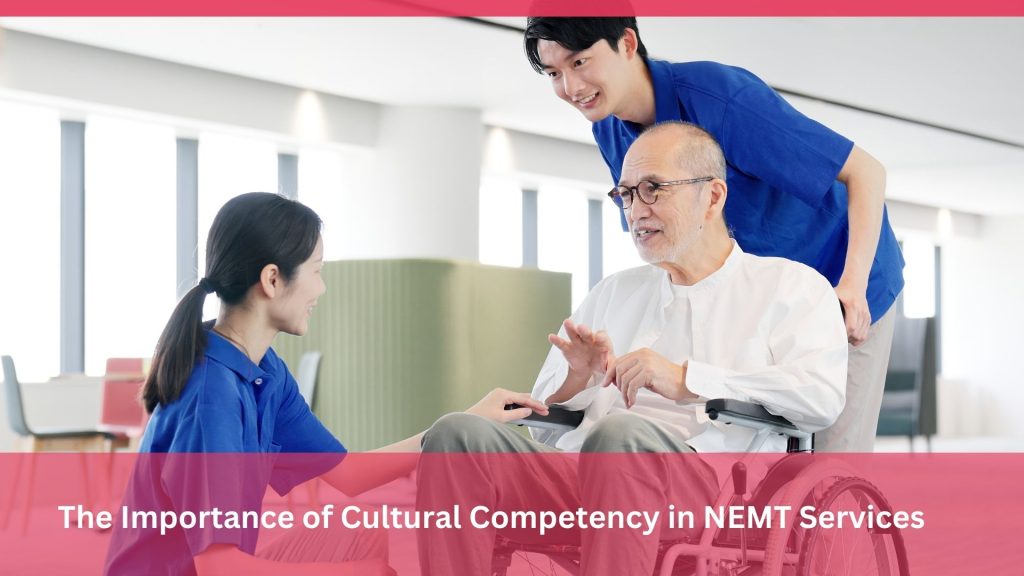New at Safr Care
The Importance of Cultural Competency in NEMT Services

The Importance of Cultural Competency in NEMT Services
Non-Emergency Medical Transportation (NEMT) services play a crucial role in ensuring that individuals with medical needs can access healthcare facilities safely and efficiently. However, one often overlooked aspect of NEMT services is cultural competency. Cultural competency in NEMT is vital for providing inclusive, respectful, and effective transportation services to diverse populations.
Understanding Cultural Competency in NEMT
Cultural competency refers to the ability of service providers to understand, communicate with, and effectively interact with people from different cultural backgrounds. In the context of NEMT, this involves:
- Recognizing and respecting cultural differences
- Understanding language barriers and ensuring clear communication
- Addressing religious or dietary restrictions that may impact transportation needs
- Being sensitive to cultural perceptions of healthcare and mobility
Why Cultural Competency Matters
The lack of cultural competency in NEMT services can lead to misunderstandings, miscommunication, and even delays in medical care. Here are some key reasons why cultural competency is essential:
- Improved Patient Experience: Culturally competent drivers and staff can provide a more comfortable and respectful environment for patients.
- Enhanced Communication: Understanding linguistic and cultural nuances helps ensure that patients receive the right information about their transportation.
- Greater Trust in Healthcare Services: Patients who feel understood and respected are more likely to engage with healthcare services.
- Compliance with Regulations: Many healthcare and transportation guidelines emphasize the importance of cultural sensitivity and patient rights.
Steps to Improve Cultural Competency in NEMT
To ensure that NEMT services are culturally competent, providers should implement the following strategies:
- Diversity Training: Regular training sessions to educate drivers and staff about cultural differences.
- Hiring Multilingual Staff: Employing drivers and coordinators who can communicate in multiple languages.
- Providing Translation Services: Ensuring that language assistance is available for non-English speaking patients.
- Understanding Cultural Sensitivities: Being aware of religious practices, dietary restrictions, and mobility concerns.
- Community Engagement: Partnering with local cultural organizations to better understand the needs of diverse communities.
Conclusion
Cultural competency is a crucial element of effective NEMT services. By embracing diversity, fostering understanding, and implementing inclusive policies, NEMT providers can enhance the quality of service, build trust with patients, and contribute to better healthcare outcomes. As the world becomes increasingly diverse, cultural competency in NEMT is not just an option—it is a necessity.
